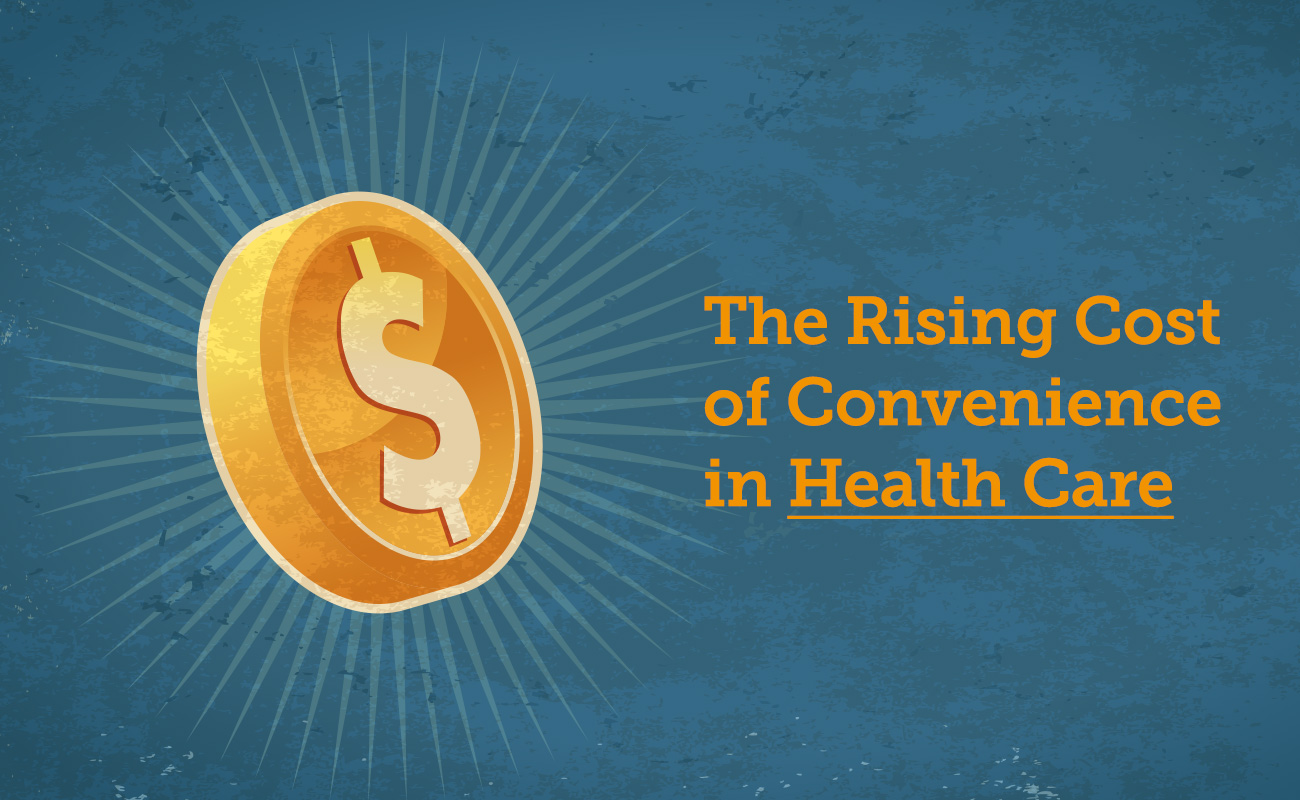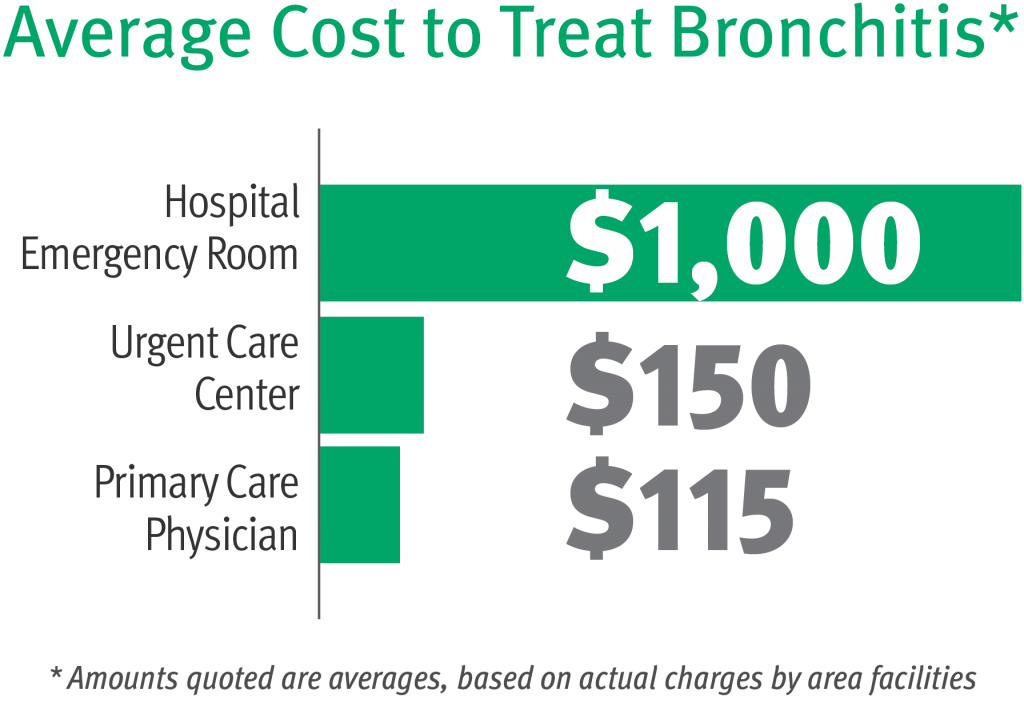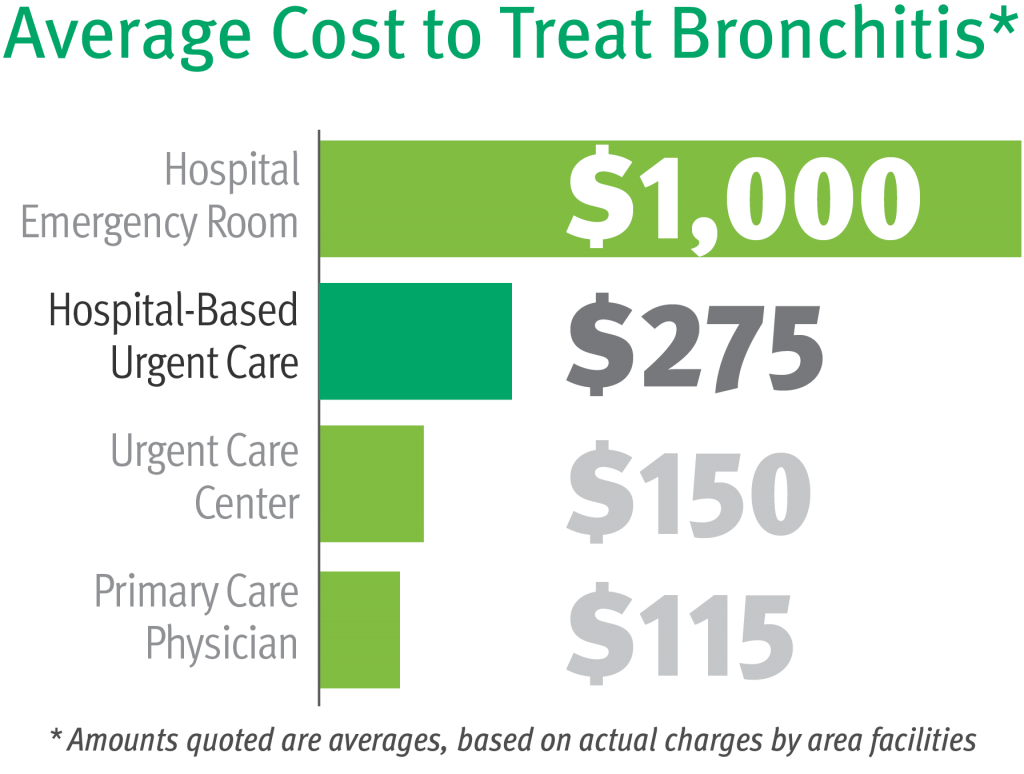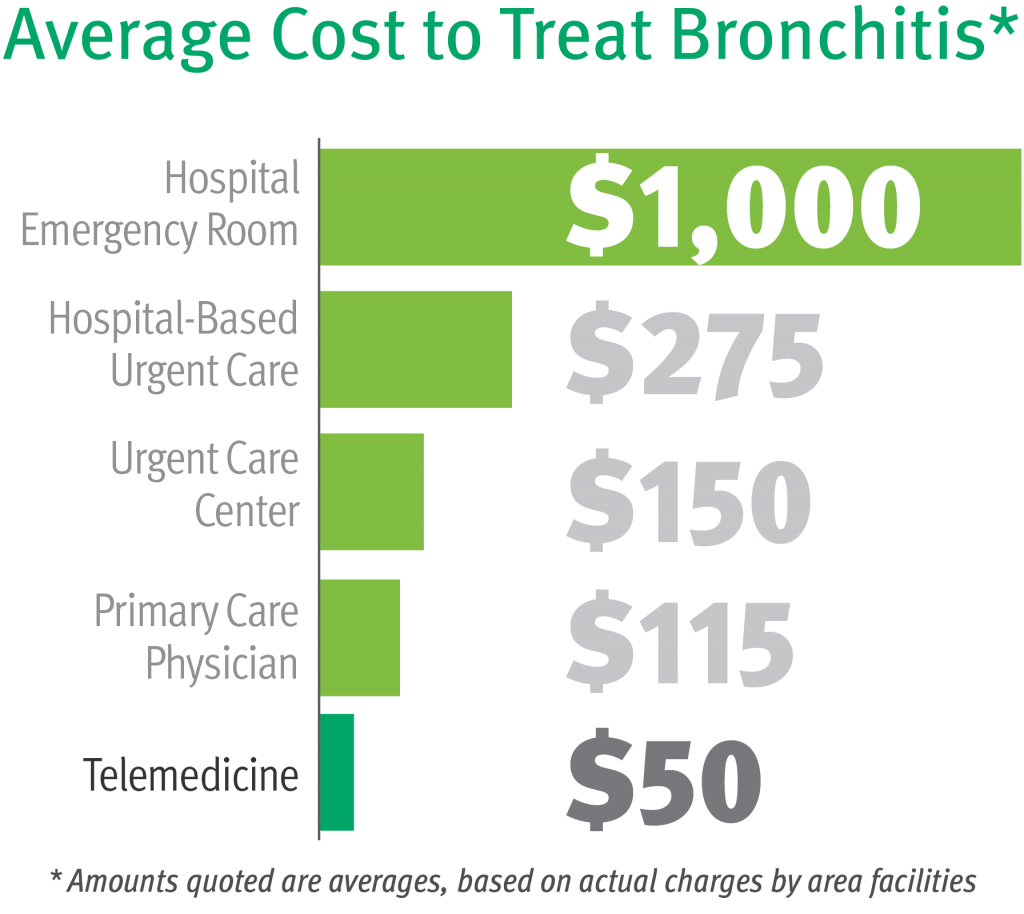The Cost of Convenience in Health Care

Stop me if you’ve heard this one…
You’ve worked all week while nursing what you think is bronchitis. Unable to take the time off work, you skip a trip to your primary care doctor and cross your fingers that the ailment clears on its own. By the time Friday afternoon rolls around, your condition begins to deteriorate and it’s now time to see the doctor. Only problem? Your family practitioner is now closed for the weekend.

Fortunately for you, the Capital Region is home to a plethora of urgent care centers conveniently open after-hours and on weekends. You decide to pop in on your way home, grab a prescription, and you’re well on your way to feeling better. Not only did you avoid a weekend worth of agony, you may have also saved a pretty penny by sidestepping a costly emergency room visit.
That appointment will cost how much?
When it comes to health care, no one wants to make a decision based on cost. But the fact of the matter is that health care is really expensive, and the cost of care you receive varies greatly depending on the point of service.
For example, local emergency rooms charge about $1,000 to treat a patient with bronchitis, while the same exact services run about $150 at the average local urgent care center. But if you really want to be a cost-conscious consumer, head to your primary care doctor, who charges about $115.
While we’re on the subject of primary care providers, it’s worth noting that many PCPs in the Capital Region – including many of those in the CDPHP Enhanced Primary Care program, have begun offering appointments outside normal business hours, including on weekends. If you are not sure if your doctor offers expanded office hours, give them a call before you’re sick.
Back to the subject of urgent care… 
While urgent care centers have become a more convenient, cost-effective form of care, many hospitals have found great opportunity in this $15 billion a year business by operating their own urgent care facilities, yet charging more than competitors.
For example, the average cost to treat a patient with bronchitis is about $275 at a hospital-owned urgent care, while privately owned facilities charge about $150.
There has to be a better way
Fortunately, the demand for cost-effective, convenient health care is not falling on deaf ears. Many health plans, including CDPHP, have begun offering members access to telemedicine services. Through live video consultations, members are able to meet face-to-face with board-certified doctors and receive treatment for myriad health conditions. So far, utilization and awareness of these services remains low, but telemedicine has the potential to save members and health plans alike, as providers charge about $50 a visit.

While telemedicine services can be a great options on holidays, weekends, and in the middle of the night, it’s important that – when possible – you make every effort to see your primary care provider. Your PCP is most likely the physician who understands you the most and should be seen as “home base” when it comes to your care.
Onward and upward
The future of medicine in America is bright. So bright we can barely afford it. I am confident that, in due time, we will find a happy medium where high-quality, cost-effective, convenient care can come together for the good of this country.
 The Daily Dose
The Daily Dose
Comments are closed.